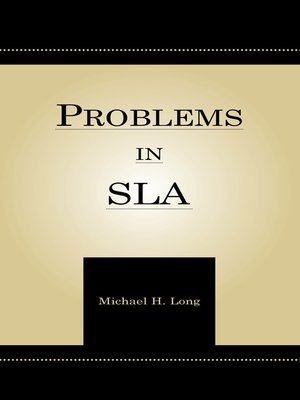Problems in Second Language Acquisition
ebook ∣ Second Language Acquisition Research
By Michael H. Long

Sign up to save your library
With an OverDrive account, you can save your favorite libraries for at-a-glance information about availability. Find out more about OverDrive accounts.
Find this title in Libby, the library reading app by OverDrive.



Search for a digital library with this title
Title found at these libraries:
| Library Name | Distance |
|---|---|
| Loading... |
Second language acquisition has an identity problem. It is a young field struggling to emerge from the parent fields of education and applied linguistics. In his new book, Problems in Second Language Acquisition, Mike Long proposes a way to help second language acquisition develop a systematic and coherent focus using the philosophy of science as the lens.
The volume is neatly organized into three parts—theory, research, and practice. This structure allows a focus on areas of SLA of interest to many in the field. These include theory proliferation and comparative theory evaluation; the Critical Period Hypothesis and negative feedback; and the practice of "synthetic" language teaching.
The controversial volume will be of interest to researchers, educators, and graduate students in second language acquisition, applied linguistics, TESOL, and linguistics programs. It may be recommended as additional reading for an introductory SLA course in order to stimulate class discussions.
The volume is neatly organized into three parts—theory, research, and practice. This structure allows a focus on areas of SLA of interest to many in the field. These include theory proliferation and comparative theory evaluation; the Critical Period Hypothesis and negative feedback; and the practice of "synthetic" language teaching.
The controversial volume will be of interest to researchers, educators, and graduate students in second language acquisition, applied linguistics, TESOL, and linguistics programs. It may be recommended as additional reading for an introductory SLA course in order to stimulate class discussions.






